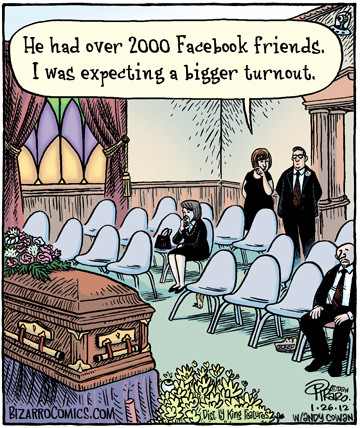Posted by Vale
Would a traditional religious ceremony with six lacklustre hymns, a perfunctory celebrant and no mention of the person in the coffin count as one? I expect most of us would say no – but, sometimes, I wonder.
We often talk about the grand and the personal, the expressive and moving as though that sort of funeral represented some sort of ideal. They can certainly be wonderful events and, if they are what you want, there is no doubt that they can provide that sense of release and transformation that both fulfils and allows people to move on in their grieving.
But what strikes me most about grief is its malleability. It will accommodate itself to every human tradition and style. Buried like the Muslim within 24 hours? Grief accommodates this. Held for weeks while the house is made ready as they do in Ghana? Grief accommodates this, as it does for burning, sky towers or ship burials.
So what makes a good funeral? There is no common factor that I can see, other than the conviction amongst the mourners that they are doing what is right – by society and by the person they have lost. If they have confidence there then grief will accommodate whatever arrangements need to be made.
In that sense, if a family goes away feeling that a ceremony was what someone wanted and, above all, was the right thing to do, even the most threadbare won’t have been without some comfort.
So, what makes a ‘good funeral’? Is it, in fact, a sense of duty fulfilled and not, as we sometimes seem to suggest here, the theatre or therapy of the memorable event? Discuss…



The commonest criticism, or praise, of a funeral springs from the observation that it didn’t, or did, represent the person in the coffin. The way to represent a person can conform to no formula; twenty artists would paint or sculpt twenty very different portraits in different materials, any or all of which could convey something of the essence that is what makes us recognize someone. So, if there is indeed a duty to be done, it would seem to me to be a duty to the dead person that’s the one that may set us off on a grieving path… Read more »
I think the funerals where I feel that I have done a good job are those where the family feel that the person has been truly represented as Jonathan says. It is not uncommon for people to comment that it felt like I knew the person – though it is probably true to say that I don’t say a great deal about the person myself, but allow space for people’s own memories. And as Jonathan says, to allow people to acknowledge the weaknesses of a person is far more important than allowing an impression of a plaster saint having been… Read more »
What makes a good funeral? My favourite description is the Celtic one of ‘a group of family and friends accompanying the soul on the last mile of its earthly journey.’ Whatever you feel about ‘soul’ there is always a sense of ‘journey’ and ‘transition’ – for the deceased, for the family, and for other attendees too. Everyone longs for recognition and to be heard. Families have stories to be listened to about the death itself, but that isn’t necessarily aired at the funeral, but it does inform the tone and mood of the funeral. As you say the family wants… Read more »
That, Jehdiah, is masterful – in fact, it’s textbook stuff, as it were, and should go straight into the training manual. Thanks for an enlightening read.
Sorry, it was that ‘discuss’ instruction, I do have a tendency to be preachy!
I think the overall factor is COMMUNICATION – in every sense of the word – be that in the face to face contact with the bereaved, the written word or the delivery – concentrate on whether it is good communication and you will be on the right path